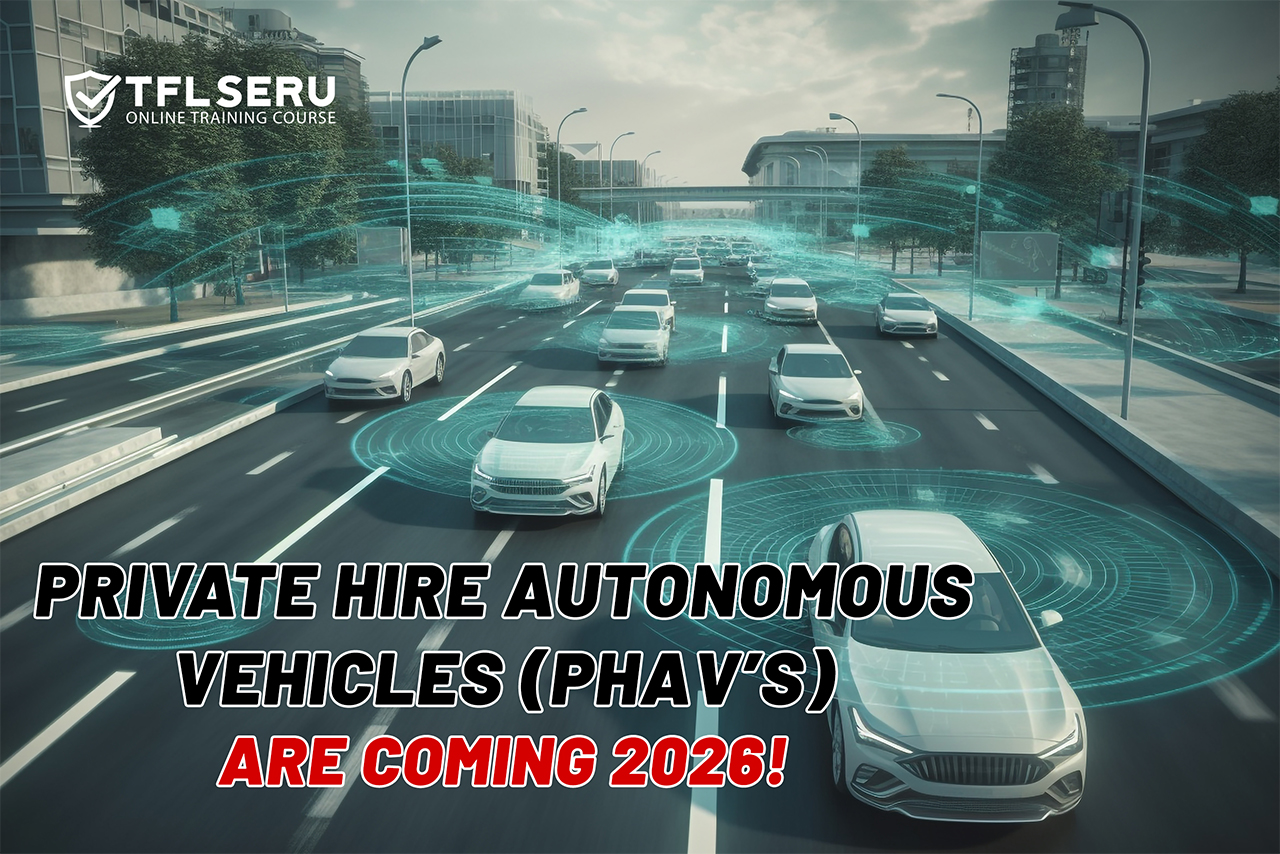Self-driving PHV’s on road in 2026
As we move into a world with A.I slowly slipping its way into more industries, it’s inevitable that A.I and self-driving autonomous vehicles will become a part of the Private Hire and Taxi industry across the world.
Recently, we’ve heard that self-driving private hire autonomous vehicles will be hitting the streets of London as soon as Spring 2026, which is earlier than the expected date of Spring 2027.
With Uber and UK tech firm Wayve preparing to test fully self-driving vehicles on London’s roads by spring 2026, Private Hire (PH) drivers are understandably watching developments closely.
So, what does the rise of Private Hire autonomous vehicles (PHAVs) mean for London’s 100,000+ licensed Private Hire drivers? Let’s explore the pros, cons, and key dates that could shape the future of the industry.
What’s Happening and When?
Uber, partnering with artificial intelligence firm Wayve, is planning a trial of fully driverless cars in London by 2026. These will be level 4 autonomous vehicles capable of driving themselves without human input in most scenarios.
Meanwhile, Transport for London (TfL) and the Department for Transport (DfT) are developing new legislation to govern Avs or PHAV’s as we think they will be called, including permit schemes and safety standards. But the rules are still in progress—and that uncertainty has many drivers concerned.
Potential upsides and downsides
The potential pros and cons of having Private Hire Autonomous Vehicles are 2-fold, there’s the benefit for the general public who are users of the service and then there’s the people working in the private hire industry. The cons will mostly effect those working in the Private Hire industry.
Better road safety
This is a benefit for the users of private hire vehicles as well as other road users. AVs must meet stricter safety requirements than human drivers. If implemented properly, this could lead to fewer accidents, improved road safety, and support for TfL’s “Vision Zero” goal to eliminate deaths and serious injuries on London’s roads.
Smoother traffic flow
In theory, self-driving cars could ease congestion by improving traffic efficiency. If shared services are optimised correctly, this could mean fewer private vehicles on the road.
New job opportunities
While driving jobs may decrease (which is sad for our hard-working Private Hire Licensed Drivers), the AV industry is expected to create new roles in vehicle maintenance, monitoring, customer service, and technology management. Government figures estimate that AV tech could add £42 billion to the UK economy and create 38,000 jobs by 2035.
Loss of jobs
Let’s be honest: if AVs take over large parts of the ride-hailing and private hire market, many current drivers could lose work. TfL has acknowledged this but hasn’t yet laid out any support plans for affected workers.
Although in the early days we think there may be some advantage for drivers, as we don’t this PHAV’s will be able to take on long-distance trips. So, this could mean that PHAV’s will be used to complete shorter trips that often don’t work out as value for money for private hire drivers, while leaving long distance trips for actual drivers.
However, we can also envision greedy ride hailing companies to charge a higher royalty fee to drivers for such jobs as they know drivers will be eager to take any work with the fear of losing their livelihood to self-driving private hire vehicles.
Delays due to regulation
As we all know, TfL takes a lot of time to come up with regulations. Previous rules such as the English Language requirement took nearly 5 years to implement. AVs currently don’t fall under taxi or PHV licensing rules. That means they don’t have to follow fare limits, accessibility requirements, or the driver vetting processes that human drivers do. This creates an uneven playing field for those who play by the rules. We don’t think TfL will have new rules in place by 2026 and if these tech companies go ahead with launching their Autonomous Private Hire and Taxi services, they may soon get stopped in their tracks with legal cases to battle with TfL.
Equal opportunities issues
TfL work hard on making sure taxis and private hire services in London are accessible to all. Without strong regulations, AV fleets may overlook passengers with disabilities. Many PH drivers play a crucial role in serving vulnerable users—something an unregulated AV fleet may fail to match.
What happens next?
The government is working on a new permit regime for AV operators, separate from the traditional taxi/PHV framework. TfL is pushing for national rules that enforce data sharing, vehicle safety, and minimum service standards, especially in terms of accessibility and public benefit.
They say we should expect policy updates in late 2025 or early 2026, especially after Uber and Wayve’s trial results are reviewed. But in reality, we don’t think they’ll get these policies ready by then, maybe unless they use A.I to write them.
The reality is that self-driving vehicles are coming in at some point. For London’s Private Hire drivers, this presents both a challenge and an opportunity.
While job security could be at risk in the long run, human-driven services that offer quality, trust, accessibility, and personal care will remain valuable. With smart regulation and an industry-wide conversation, there’s still time to shape the future in a way that benefits everyone.


